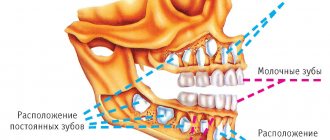The “magical” effect of music on children
As a result of numerous studies, it has been scientifically established that music actually contributes to more active development of children. Many mothers practice music therapy even for babies still in the womb. Of course, a child begins to perceive the lyrics of songs only at a more mature age, but the ability to recognize a melody to one degree or another is observed even before birth. How exactly does the influence of music manifest itself on the development of children, including preschool children? Among the positive effects of listening to it by your baby are the following:
• Memory improvement . The child remembers the melody and lyrics, and this happens, rather, on a subconscious level.
• Speech formation . By singing along to your favorite songs, your baby trains his articulation skills.
• Music therapy as a way to control the emotional state of a child . Overly active and easily excitable children relax better with calm music. And cheerful and playful melodies will help stir up and invigorate passive kids.
• Development of creative abilities . By listening to music, a child learns to interpret and understand it, which means that the imagination is actively involved in the process.
• Development of writing and mathematical abilities . Surprisingly, regular listening to music also affects a child’s ability to write and count. There is a scientific explanation for this - music develops spatial perception.
What do MUSIC classes give you?
Despite the fact that the child screams songs out of tune and has no hearing; despite the fact that there is nowhere to put the piano, and the grandmother cannot take the child “to music”; despite the fact that the child has no time at all - English, Spanish, swimming class, ballet, etc., etc.... there are good reasons to overcome all this and still teach music , and modern parents should know these reasons: 1. Playing is follow tradition. All aristocrats, Russian and European, were taught music. Playing music is gloss, brilliance and chic, the apotheosis of secular manners. Duke Ellington started playing the piano because girls always gather around the guy who plays. Well, what about the girl playing? Attention, parents of brides! 2. Musical lessons develop willpower and discipline: you need to practice the instrument constantly, regularly and without interruptions. In winter and summer, on weekdays and holidays. Almost with the same tenacity with which champions train in the gym and on the skating rink. But, unlike sports heroes, when playing the piano, you cannot break your neck, leg, or even arm. Attention, strict parents! Music is character education without the risk of injury: how good it is that this is possible! 3. By studying music, a child develops mathematical abilities. He thinks spatially, hitting the right keys, manipulates abstract sound figures, memorizing the musical text, and knows that a piece of music is like a mathematical proof: neither subtract nor add! It is no coincidence that Albert Einstein played the violin, and Oxford physics professors and mathematics professors make up 70% of the university's music club members. Attention, visionary parents of future mathematicians and engineers! Playing music is more pleasant than solving difficult problems under a tutor’s stick. 4. Music and language are twin brothers. They were born one after another: first the eldest - music; then the younger one – verbal speech, and in our brain they continue to live side by side. Phrases and sentences, commas and periods, questions and exclamations are found in both music and speech. Those who play and sing speak and write better, remember foreign words more easily, and learn grammar faster. Music lovers Turgenev and Stendhal, Boris Pasternak and Leo Tolstoy, Jean-Jacques Rousseau and Romain Rolland, each of whom knew more than one foreign language, recommend music to all future polyglots. Attention, wise parents of future journalists and translators! In the beginning there was the Word, but even earlier there was Sound.
5. Music is structural and hierarchical: large works are divided into smaller parts, which in turn are divided into small themes and fragments consisting of small phrases and motives. A spontaneous understanding of musical hierarchy makes it easier to understand a computer, which is also entirely hierarchical and structural. Psychologists have proven that little musicians, students of the famous Shinichi Suzuki, even if they were not very successful in the development of musical hearing and memory, were ahead of their peers in terms of structural thinking. Attention, pragmatic parents of future IT engineers, system administrators and programmers! Music leads straight to the top of computer science; It is no coincidence that Microsoft prefers employees with a musical education. 6. Musical classes develop communication skills or, as they are called today, communication skills. Over the years of study, a child musician will become acquainted with the gallant and friendly Mozart, the rugged and athletic Prokofiev, the sophisticated and philosophical Bach and other very different musical figures. While playing, he will have to impersonate them and convey to the public their character, manner of feeling, voice and gestures. Now there is one step left to the manager's talent. After all, perhaps the most important thing for him is to understand people and, using his understanding, to manage them. Attention, ambitious parents of future founders of business empires! Music leads from heart to heart, and a top manager’s most formidable weapon is the disarming smile of a “nice guy.” 7. Musicians are kind-hearted and courageous at the same time. According to psychologists, male musicians are sensual, like ladies, and female musicians are persistent and strong-willed, like men. Music softens morals, but to succeed in it, you have to be courageous. Attention, visionary parents waiting for help and support in old age! Children who have studied music are sympathetic and patient at the same time, and therefore are more often ready to give their elderly parents that same “glass of water.” 8. Music lessons teach you to “turn on command.” Musicians are less afraid of the dreaded word deadline. At a music school, you cannot reschedule a scale test or a class concert until tomorrow or a week in advance. The artist’s position on stage teaches him maximum readiness “on demand,” and a child with such experience will not fail a serious exam, a job interview, or an important report. Attention, worried parents! Musical lessons in childhood mean maximum endurance and artistry for life. 9. Musical classes raise little “Caesars” who know how to do many things at once. Music helps to navigate several simultaneous processes: for example, a pianist sight-reading does several things at once - remembers the past, looks into the future and controls the present. The music flows at its own pace, and the sight-reader cannot stop, rest, or take a breath. Likewise, an air traffic controller, a computer operator, or a stockbroker monitors several screens and simultaneously listens to and transmits information on several telephones. Music teaches you to think and live in several directions. Attention, overworked and tired parents! It will be easier for a child musician than for you to run along several life paths and come first everywhere. 10. And finally, music is the best path to success in life. Why? See points 1-9. It is no wonder that many celebrities have a musical background: - Agatha Christie wrote her first story about why it is difficult for her to play the piano on stage; “Condoleezza Rice, on the contrary, loves nothing more than to play in public in her dazzling concert dress.” Bill Clinton is sure that without the saxophone he would never have become president. Look at successful people in any field, ask if they were involved in music as a child, even if only for a short time, even if not with much zeal? Of course we did. And we have 10 reasons to follow their inspiring example. D.K.Kirnarskaya
Let's consider the reasons that reveal the need to teach a child to sing: 1. A singing child experiences faster intellectual development. He learns to memorize words faster and establish complex relationships, and learns to concentrate. 2. A child’s voice is a natural instrument that he possesses from an early age. With this tool you can express a lot, talk about a lot. If you teach a child to sing from childhood, his voice acquires flexibility and strength, which are more difficult for an adult. 3. In the process of singing, musical abilities develop - timbre and dynamic hearing, modal sense, musical and figurative thinking, musical memory. 4. Many doctors claim that when children sing, they strengthen the immune system, health, and tone, since singing is a psychophysiological process associated with the work of vital systems such as breathing, blood circulation and the endocrine system. 5. Singing eliminates some speech defects, develops the child’s articulation and diction, as well as freedom of facial expressions. 6. Through singing, a child develops his artistic abilities. And by trying on this or that character and image, a person learns to be different and not get lost in different situations. 7. The ability to speak in a well-trained voice is a definite plus! 8. Singing lessons help develop correct posture in a child! 9. In pre-revolutionary Russia, children from wealthy families had to learn to sing. The ability to sing and play musical instruments was considered good manners! 10. While singing, a person disconnects from all problems and anxiety states. Singing is anti-stress. It makes a person happier. And it doesn’t matter where he sings: on stage, in the choir, or in the bathroom... 11. Singing is always present in a child’s life, fills his leisure time, helps organize creative story games. This is one of the most favorite types of musical activities for children. 12. Thanks to the verbal text, the song is more accessible to children in content than any other musical genre. 13. Everyone sings. Another question is that the majority sing incorrectly. So maybe you should learn to sing correctly?
It's no secret that there are more girls than boys in music. Ask why? The answer suggests itself, but for anyone it’s a mystery, just watch this short video:
What kind of music can children play?
Any musician will tell you that you need to develop your child’s ear for music with the right music. The direction of development of the child’s personality also depends on the choice of musical material. You shouldn't experiment with some styles and genres - you can't expect any usefulness from them. Other directions have a beneficial effect on the child.
Your baby should not include:
• Noisy and too loud music. Sensitive children's ears react very sharply to chaotic house, aggressive heavy metal, hard garage rock, etc. Such music can cause tears and hysterics in the youngest music lovers, and aggression and excess energy in older children. Psychologists do not at all advise adults to play songs for their children in which percussion instruments prevail.
• Songs with obscene language . The lyrics of many compositions contain words that even adults try not to use in their speech. Children are not known for their modesty, so they can repeat an obscene expression with a completely calm face. It will be very difficult to wean them from a bad habit.
• Long and too slow compositions . Calm and light music is good, but in moderation. You shouldn’t spend all day playing lyrical ballads that make you sad. Adults may like them, but children still need more dynamic and uplifting music.
Scientists, in an attempt to determine how music affects the development of a child’s personality, came to the following conclusions:
- Children's music therapy sessions should be carried out 2-3 times a day for 20-30 minutes each. The duration can be increased if the baby is inclined to listen to music.
- It is better for a child to listen to relaxing compositions after feeding, and dynamic and cheerful ones - before.
- There is no need to play music loudly—the volume of calm conversation is enough.
- The repertoire can be wide and include children's, pop, jazz, folk songs, etc.
- The child must be introduced to classical music - it is the best means for music therapy. However, there are some nuances here that must be taken into account when conducting “sessions”. For example, it is impossible to compose a repertoire exclusively from classics - it is important to maintain a balance between different musical styles.
The influence of classical music on children
Not all adults can boast of a love of classical music. Most people find it too boring and difficult to listen to every day. However, child psychologists assure that the influence of classical music on the psyche of children is colossal. Of course, everything is very individual. Some kids, hearing the sounds of an orchestra, throw a tantrum, others become energized or, conversely, completely calm down. The reaction of children depends directly on their temperament, and for each it is necessary to create an individual music program.
The benefits of classical music for children of all ages have been scientifically proven. Regular listening to Mozart, Bach, Chopin and other “golden” composers significantly develops a child’s creative, mental and communication abilities. There is even the so-called “Mozart Effect”, developed by the French otorhinolaryngologist A. Tomatis. It boils down to the fact that children listening to the works of W. A. Mozart demonstrate a more dynamic development of thinking than their peers who do not listen to the music of this composer. The doctor explains this phenomenon with a special tonal sound range, characteristic of the works of Wolfgang Amadeus. Of course, it is too early to talk about a 100% effect, but the fact remains that classical music definitely contributes to a more active mental and creative development of children.
Songs for children
Songs written specifically for young music lovers play a major role in the development of a child’s personality. As a rule, these are simple compositions with easy-to-remember text that take into account the importance of children's creativity and the development of imagination. Listening to such songs, the child gets involved in the process of learning about the vast world of music, turns on his imagination and draws various images. Very often, parents even combine children's music therapy sessions with drawing classes. A child can express his emotions and thoughts while listening to songs on paper using paints.
Analogues of adult musicals—musical fairy tales—are of great interest to children. These can be either audio recordings or musical cartoons, which are widely represented in the world film collection today. In an easy and accessible form, they talk about simple human values and life wisdom, and instill in children courage, respect for loved ones, justice and kindness. Kids quickly memorize songs from fairy tales, which contributes to the development of memory and speech.
Thus, music greatly helps parents in matters of child upbringing. In addition, if you start music therapy at an early age, the child will definitely develop creative abilities. And then parents will be faced with other questions, for example, how to choose a musical instrument or teach their child to draw.
Should I send my child to a music school?
If at least one of the child’s relatives has a good voice and hearing, then it is quite natural that the child is not deprived of musical abilities. You can verify this by sending your child to a music school. Today it is much more prestigious to teach a child English, rapid reading and writing than to learn music, but music plays an important role in the development of a child’s personality. Perhaps your child will like the choice of instrument that you offer him, or maybe he himself has his eye on a piano or violin. Children often strive to imitate their idols, and if your child’s favorite actor in a film sits in a black tailcoat at the piano and plays a beautiful melody, then the child may become attracted to this instrument and ask you to teach him to play it.
What will a child receive at a music school? First of all, this is musical literacy, aesthetic taste and the concept of beauty. Few children at an early age understand the true meaning of the works of the classics, but they try their best to convey them to listeners. The child learns to hear the subtlest changes in music, to understand its nuances and mood, and over time he will learn to hear these changes in human speech - to notice the slightest changes in the mother’s intonation or the teacher’s unnoticeable dissatisfaction. With the help of music, a child learns to communicate with people, to capture the mood of the interlocutor, his emotional state. In addition, the influence of music on a child’s development is undeniable in the development of perseverance, patience, and systematic work.
Read also
Why a child doesn’t speak: stages of speech formation, causes of the problem and methods for correcting it
However, it would be a mistake to think that if you send your child to a music school, he will immediately become diligent and sensual. Many children don’t even last a year in music school because they are bored there, they need to learn a lot of terms they don’t understand, understand them, and repeat the same melodies at home day after day. So if your child resists such teachings, do not scold him, because not everyone grows up to be famous musicians; for many, musical education simply gives another page of variety in life, and nothing more.











